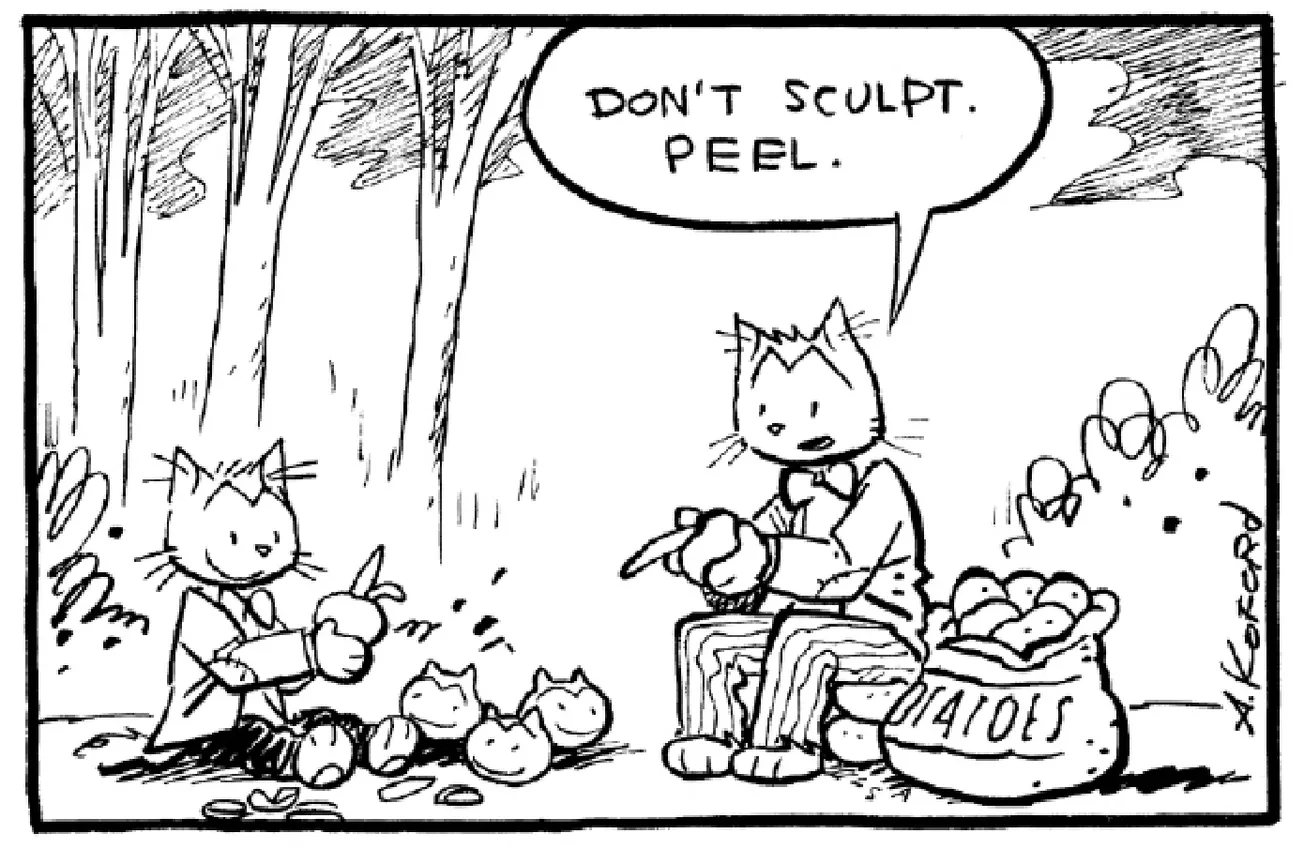As you might have noticed, I’ve been posting less frequently. Apart from doing issues of The American Bystander at a breakneck pace—apart from that—there is a simple reason I’m talking to you less.
Comedy writing—especially of the Benchleyian offhanded-absurdist school, which is the style I employ—is a young person’s pursuit. It is purest animal vigor, expressed via joke-making. Benchley himself was dead at 56, and by 40 had written most of what he’s known for. Probably 35, actually—he called the last years of his writing career “written in blood.”

When I was a young man, I used to play a game with myself. Opening the dictionary at random, I’d thump my index finger down on the page, and give myself one minute to write three jokes about whatever I pointed to. They were usually pretty good jokes.
This mental vitality seems to be multiplicative, which is why writer’s rooms work so well (btw, yay for the WGA!). Most of the highpoints of modern comedy are raw quickness to the power of all the people in the room. The first five years of National Lampoon; the first five years of SNL; the first five years of Letterman; the first five years of The Simpsons…
At some point, there is a tailing off that is primarily biological. You can hold it off for a bit—usually through chemicals or, in my case, large doses of Worsley acupuncture and golden ball qigong—but it comes for everybody. Fran Lebowitz’s two books, both great, were written when she was 28 and 31. What has been dressed up as writer’s block is simply her sensitive self feeling the opening salvo of this decline, and pivoting to speech, which wafts away harmlessly.
It is the writing that takes it out of you.
I’ve never said this publicly, but I have some sadness that I finally achieved my lifelong dream of running a national print humor magazine at 46, on the definite downslope of my joke-making ability. Trust me; the guy who wrote Barry Trotter would’ve made an amazingly funny magazine. But this one is much prettier, and that is not nothing. Among other things, Bystander is an attempt to see if good design, kindness, and lots of variety can produce a magazine equal to the usual method of “five brilliant people trapped in a closet together for five years.”
• • •
Anyway, this tailing off has caused a change in my writing, away from jokery and towards things I really care about, and have thought a lot about. That means it’s much harder to come up with ideas, and when I do rouse myself to write, it’s 2,500 words, some of which actually contain emotion. Half a chapter in a memoir, not a light, funny Substack post. That’s what you’ve been getting from me, and will continue to get, as topics burble up.
But I miss y’all, even in the midst of these issues coming bang-bang-bang. And I’d like to think that what I’ve lost in raw speed, I’ve made up in anecdote, dirty jokes and—dare I say?—wisdom.
Let’s put this notion to the test. Have I learned anything? Am I simply an object lesson? There’s only one way to find out: an advice column.
For that, I need questions.
They can be witty, but I want real questions. Any topic is fine; all questioners will be kept anonymous. Send your questions to publisher@americanbystander.org. Obviously, submission of a question indicates consent to having it published.
I—in between issues bang-bang-bang—look forward to hearing from you.





